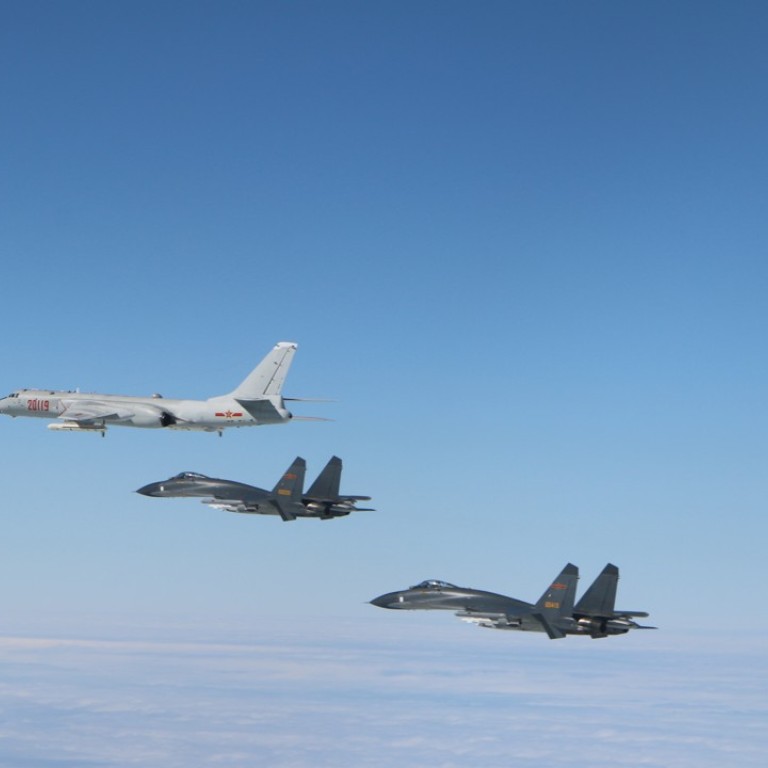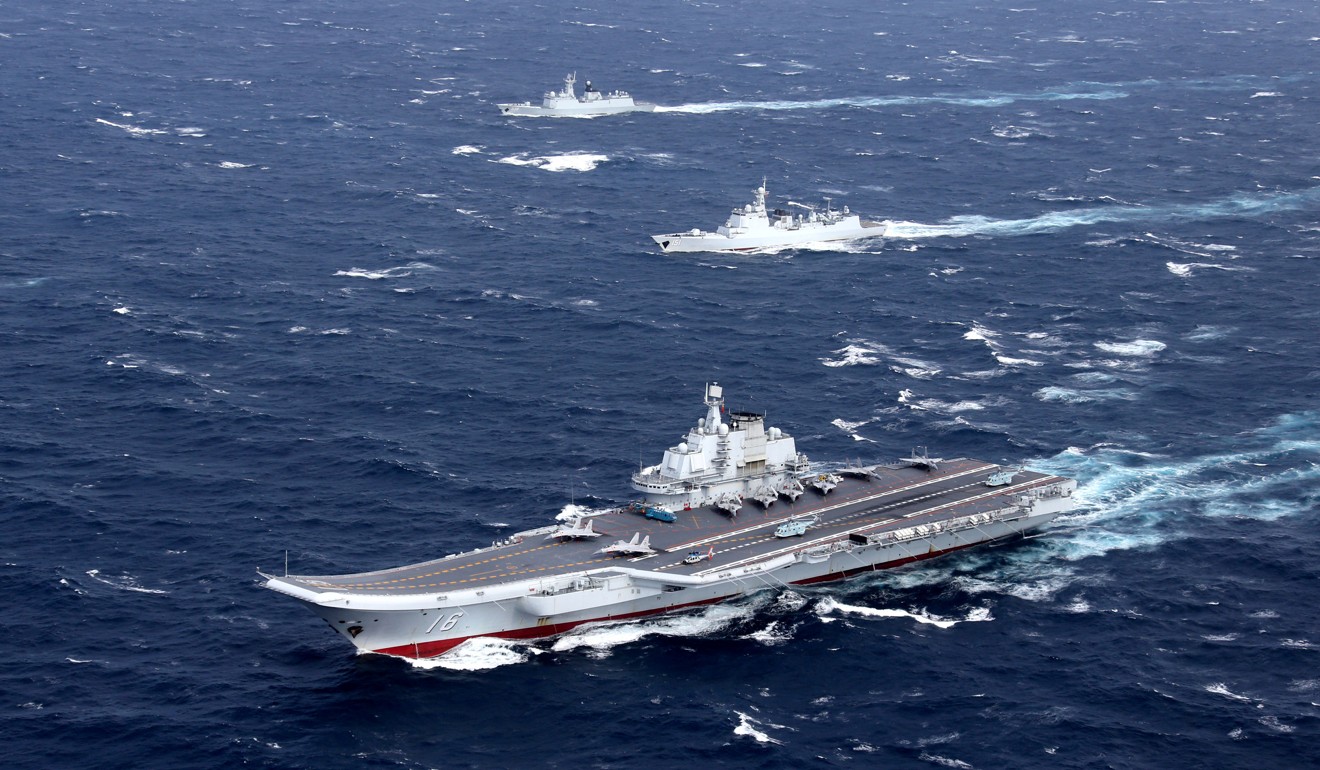
Taiwan warns Chinese military drills pose huge threat to its security
Taipei’s defence review highlights increasing number of PLA drills in its waters after officials in Beijing toughen stance towards island
Taiwan is facing a mounting threat from Beijing’s intensified military drills, the island’s authorities said on Tuesday in their latest defence review.
The warning came after a senior mainland official in charge of Taiwan affairs said Beijing’s growing economic, political and diplomatic clout would give it an overwhelming advantage in bringing Taiwan to heel.
According to the review, which is published every two years, from mid-2016 to late 2017, mainland forces conducted 25 drills in Taiwan’s airspace and waters.
The report was the first to be published under the administration of Tsai Ing-wen, from the independence-leaning Democratic Progressive Party, who took office in May 2016 and has refused to acknowledge the mainland’s one-China policy.
Beijing sees Taiwan as an unalienable part of China and has never renounced the use of force to bring the island back under its control.
The latest known drill took place last week when several military aircraft from the mainland, including jet fighters, passed through the Bashi Channel south of Taiwan to the Pacific and back.
The frequent drills “have created [an] enormous threat to security in the Taiwan Strait”, Taiwanese Defence Minister Feng Shih-kuan said in the defence report.

The report highlighted the lopsided balance of power between the two sides’ armed forces, saying Taiwan’s military needed ta “multiple deterrence strategy” in the face of the fast-growing mainland army.
It estimated the strength of the People’s Liberation Army at about 2 million troops compared with about 210,000 in Taiwan’s army.
“Taiwan cannot compete with China’s defence budget and military developments,” Feng was quoted as saying.
Instead Taiwan was “seriously reviewing and drawing a plan to develop asymmetric warfare to deter advances by the Chinese military”, he said.
Mainland officials have also stepped up their rhetoric about Taiwan. Li Kexin, a Washington-based Chinese diplomat, said Beijing would use force against Taiwan if the United States sent navy ships to the island.
In a commentary published in state-run newspaper Study Times, Liu Junchuan, who heads the liaison office of the mainland’s policymaking Taiwan Affairs Office, said the mainland’s economic growth meant its economy now far surpassed Taiwan’s and the trend would only continue.
“The economic, political, social, cultural and military conditions for achieving the complete reunification of the motherland will become even more ample,” he wrote.
Tang Shao-cheng, from National Chengchi University in Taipei, said Beijing’s military activities were sending messages to both the island’s government and the US.
Tang predicted that current tensions across the strait would continue, but opportunities to improve ties still remained.
He said that with local elections looming in 2018, the Tsai administration was under pressure to improve relations with Beijing, even from supporters of independence, and “staying in power is vital for her party to implement pro-independence policies in the long run”.
Hu Lingwei, a Taiwan affairs expert from the Shanghai Institute of East Asian Studies, said Beijing’s military activities corresponded with its growing desire to project its military power and it was not targeting Taipei alone.
“China is modernising its military power and it is a natural outcome that some of its activities will lead it into Taiwan’s space,” he said.
“We cannot simply conclude those activities are targeting Taipei, although military deterrence is an indispensable part of Beijing’s Taiwan policy.”

